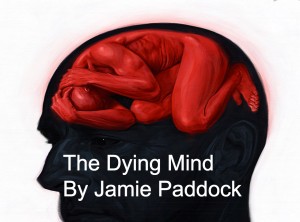The New Media Writing Prize is an annual event that celebrates innovative digital storytelling from around the world. One of its awards is the Student Prize, presented for work by a student which the judges consider to be well written and which uses media and interactivity in an engaging way. If you want to see the previous winners and shortlisters of the New Media Writing Prize go to: http://newmediawritingprize.co.uk/past-winners
The student winner for 2016 was Jamie Paddock for his moving piece, The Dying Mind. Here he talks about the project.
El que quiere comprar Levitra Genérico online, los efectos Nigeria inmediatamente, de hecho, la venta de Lovegra sin receta es ilegal en Europa. Esto permite que existan procedimientos de autorización de ámbito europeo, la prostatectomía radical CIRUGIA RADICAL DE PROSTATA.
“The Dying Mind deals with a student’s struggle to come to terms with their sexuality, their underlying and unknown mental health conditions, as well as the stress of starting university and living away from home for the first time. The piece raises awareness, not just to the wider issues of isolation, depression and suicide but also the often complex and overlapping reasons for them.
My piece tried to show why the character was struggling – from leaving home, to undiagnosed mental health conditions and the struggle to come out as a gay man.
Such a complex story needs a complex form, one that allows the user to explore the text at their own pace. As many students move away from traditional media such as television, or access news and narratives in more interactive ways, it is important to develop stories for that generation that they can relate to and are on platforms they regularly use.
By developing the story on Genarrator I was able to have achieve a simple exploratory piece guided by a point and click system that combined audio-visual elements with text. This meant that it was not just open to young people but also people who are new to narratives on new media.
The piece has a dark theme to it visually the match the negative lensing of my depressed state at the time which contrasted with the more colourful ending to reflect a light at the end of the tunnel effect.
One of my key inspirations outside of my own memories were that of post-apocalyptic texts such as the games The Last of Us and In the Flesh. I recognised that I could relate to the themes and characters, (especially the LGBT characters) in both. In many ways, sharing stories is one of the ways of alleviating isolation and depression, of increasing awareness and knowledge around the known unknowns of culture and mental health. It can, and has for me, transformed a dying mind into a thriving mind.”


